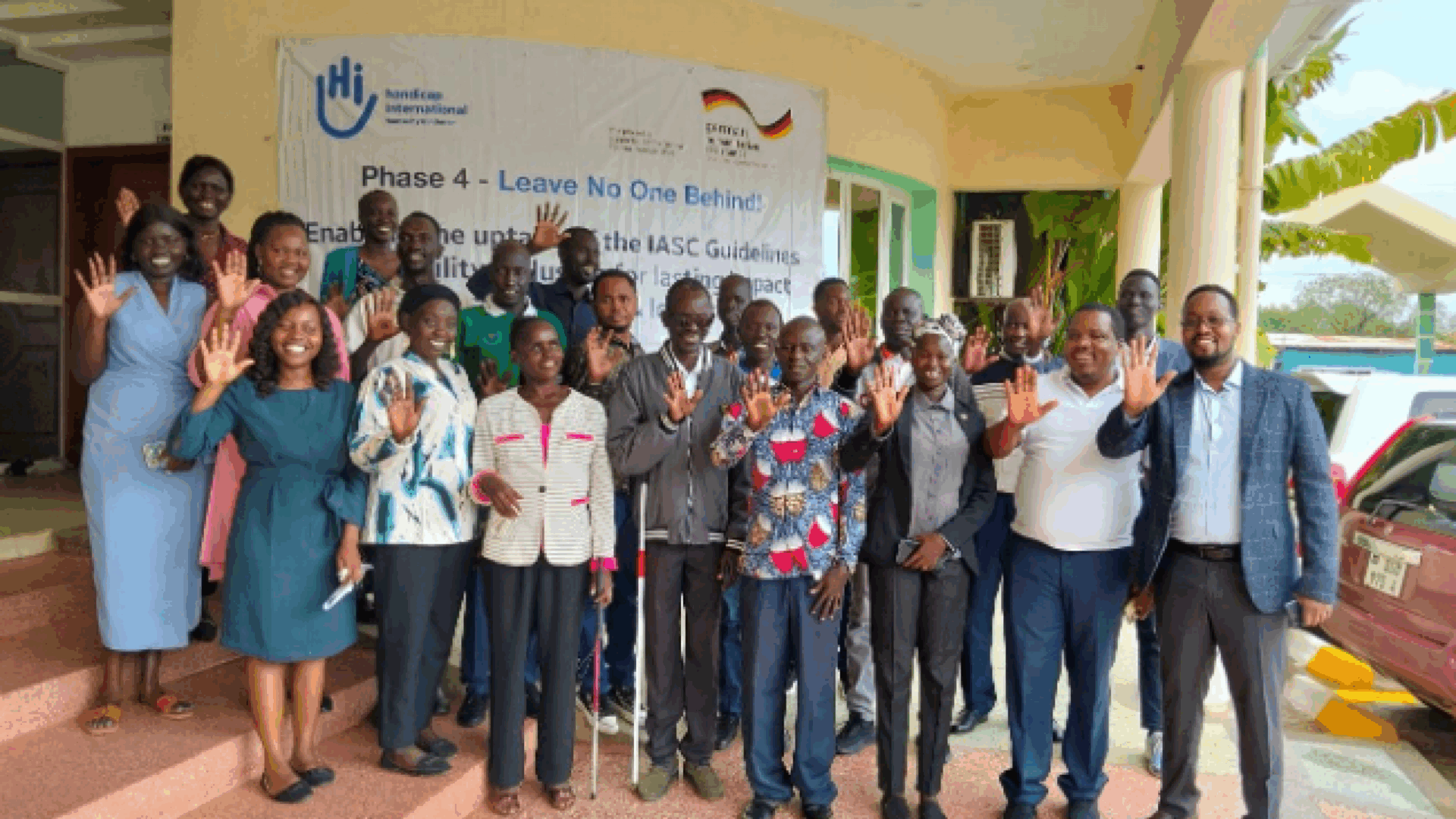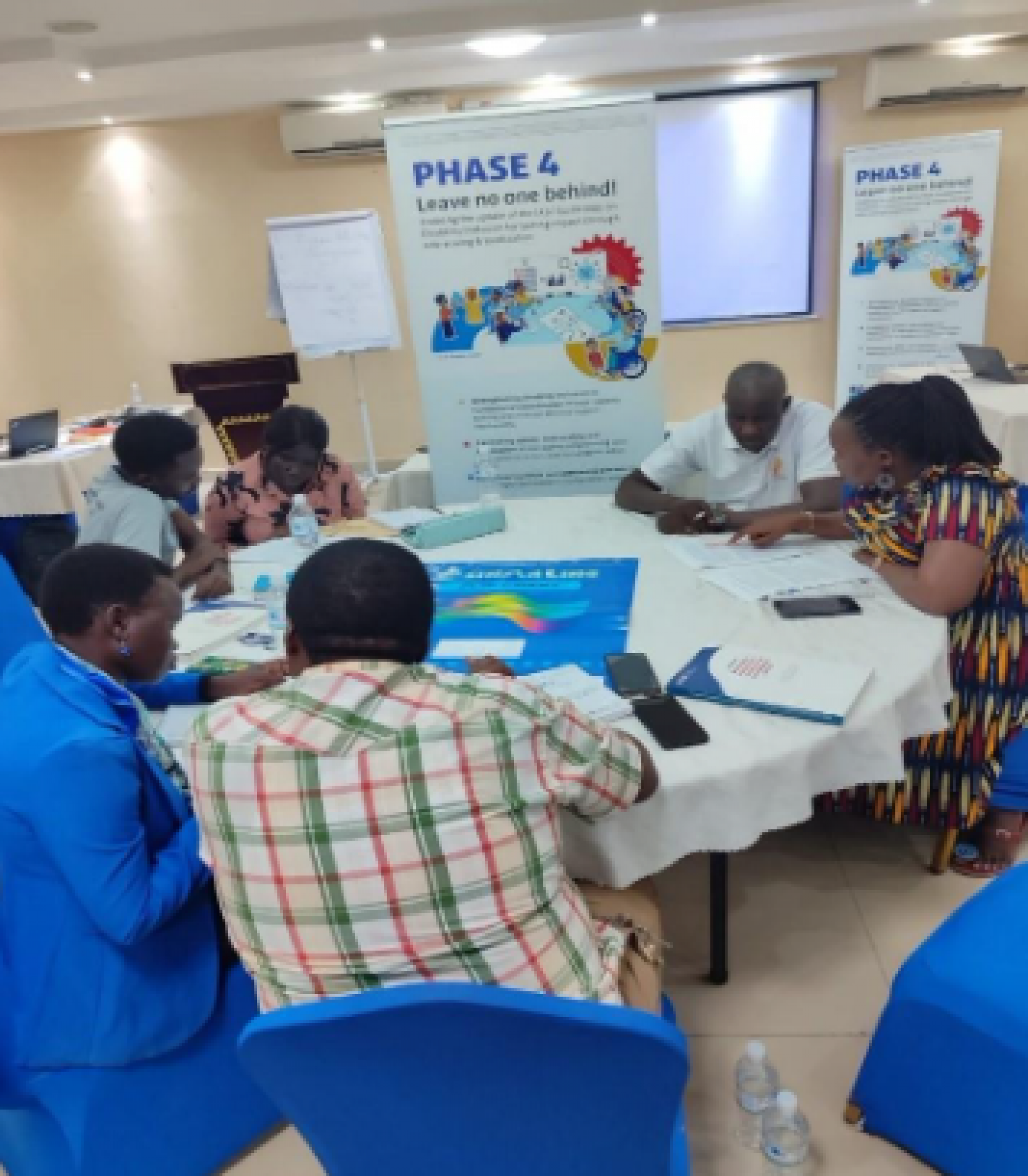Building Inclusive Futures: RAAL lab Training on Disability- Inclusive Assessment Tools
Category
General South Sudan
© Musa / HI
From July 1st to 3rd 2025, the Phase 4 – Leave No One Behind! project held its first Review, Adapt, Action and Learning Laboratory (RAAL-lab) training for protection partners in Juba. The three-day training brought together 19 participants from both national and international organizations, as well as government officials from the Ministry of Gender, Child and Social Welfare.
The training was tailored around the Disability Reference Group (DRG) modules on Introduction to Disability-Inclusive Humanitarian Action. It provided participants with insights into the concept of disability, the IASC Guidelines on Inclusion of Persons with Disabilities, the twin-track approach, the four Must-Do Actions, universal design, accessibility, and reasonable accommodation. The RAAL-lab methodology enabled participants to review their assessment tools and adapt them using the guidance provided.
The RAAL-lab methodology is a process that allows participants to review, develop, and adapt existing assessment tools to align with the recommendations of the IASC Guidelines. During the workshop, three assessment tools were reviewed, with each group identifying the existing disability-related gaps in each tool.
Participants gained knowledge and skills regarding the covered content, as well as how to review their own organizational assessment tools and to develop actionable plans to implement within the next two to three months. To strengthen the capacity of the Organization of Persons with Disabilities (OPD), one member of the South Sudan Association of the Visually Impaired was engaged as co-facilitator.
The Director General from the Ministry of Gender Child and Social Welfare emphasized:
“The facilitation by the visually impaired female co-facilitator has caught my attention, I which such presentation can be done in a public so that the perception of the community can change about persons with disabilities.”
On the same note, the Chairperson of the South Sudan Union of Persons with Disabilities also emphasized:
“Let us make humanitarian action a reality. It is not a request; it is a pre-requite and requires involvement of all the stakeholders.”
Text and photo by Obale Musa, HI South Sudan
